10 Must-Know Side Effects of Tums

25 Top Supplements That Really Work
Discover the most effective supplements to promote a healthy body
Learn about key supplements to support digestion, brain function, energy, and more
Understand how to manage common health issues with specific supplements

25 Top Supplements That Really Work
Discover the most effective supplements to promote a healthy body
Learn about key supplements to support digestion, brain function, energy, and more
Understand how to manage common health issues with specific supplements

25 Top Supplements That Really Work
Discover the most effective supplements to promote a healthy body
Learn about key supplements to support digestion, brain function, energy, and more
Understand how to manage common health issues with specific supplements

25 Top Supplements That Really Work
Discover the most effective supplements to promote a healthy body
Learn about key supplements to support digestion, brain function, energy, and more
Understand how to manage common health issues with specific supplements

25 Top Supplements That Really Work
Discover the most effective supplements to promote a healthy body
Learn about key supplements to support digestion, brain function, energy, and more
Understand how to manage common health issues with specific supplements

25 Top Supplements That Really Work
Discover the most effective supplements to promote a healthy body
Learn about key supplements to support digestion, brain function, energy, and more
Understand how to manage common health issues with specific supplements

25 Top Supplements That Really Work
Discover the most effective supplements to promote a healthy body
Learn about key supplements to support digestion, brain function, energy, and more
Understand how to manage common health issues with specific supplements

25 Top Supplements That Really Work
Discover the most effective supplements to promote a healthy body
Learn about key supplements to support digestion, brain function, energy, and more
Understand how to manage common health issues with specific supplements

25 Top Supplements That Really Work
Discover the most effective supplements to promote a healthy body
Learn about key supplements to support digestion, brain function, energy, and more
Understand how to manage common health issues with specific supplements

25 Top Supplements That Really Work
Discover the most effective supplements to promote a healthy body
Learn about key supplements to support digestion, brain function, energy, and more
Understand how to manage common health issues with specific supplements

25 Top Supplements That Really Work
Discover the most effective supplements to promote a healthy body
Learn about key supplements to support digestion, brain function, energy, and more
Understand how to manage common health issues with specific supplements

25 Top Supplements That Really Work
Discover the most effective supplements to promote a healthy body
Learn about key supplements to support digestion, brain function, energy, and more
Understand how to manage common health issues with specific supplements

25 Top Supplements That Really Work
Discover the most effective supplements to promote a healthy body
Learn about key supplements to support digestion, brain function, energy, and more
Understand how to manage common health issues with specific supplements

25 Top Supplements That Really Work
Discover the most effective supplements to promote a healthy body
Learn about key supplements to support digestion, brain function, energy, and more
Understand how to manage common health issues with specific supplements

25 Top Supplements That Really Work
Discover the most effective supplements to promote a healthy body
Learn about key supplements to support digestion, brain function, energy, and more
Understand how to manage common health issues with specific supplements

25 Top Supplements That Really Work
Discover the most effective supplements to promote a healthy body
Learn about key supplements to support digestion, brain function, energy, and more
Understand how to manage common health issues with specific supplements

25 Top Supplements That Really Work
Discover the most effective supplements to promote a healthy body
Learn about key supplements to support digestion, brain function, energy, and more
Understand how to manage common health issues with specific supplements

25 Top Supplements That Really Work
Discover the most effective supplements to promote a healthy body
Learn about key supplements to support digestion, brain function, energy, and more
Understand how to manage common health issues with specific supplements

25 Top Supplements That Really Work
Discover the most effective supplements to promote a healthy body
Learn about key supplements to support digestion, brain function, energy, and more
Understand how to manage common health issues with specific supplements
Antacids like Tums are designed to improve symptoms of acid reflux, heartburn, and indigestion by reducing stomach acid.
While antacids relieve symptoms temporarily, they only mask the underlying cause and can even worsen the problem over time.
Discover ten side effects of Tums and what you can use instead.
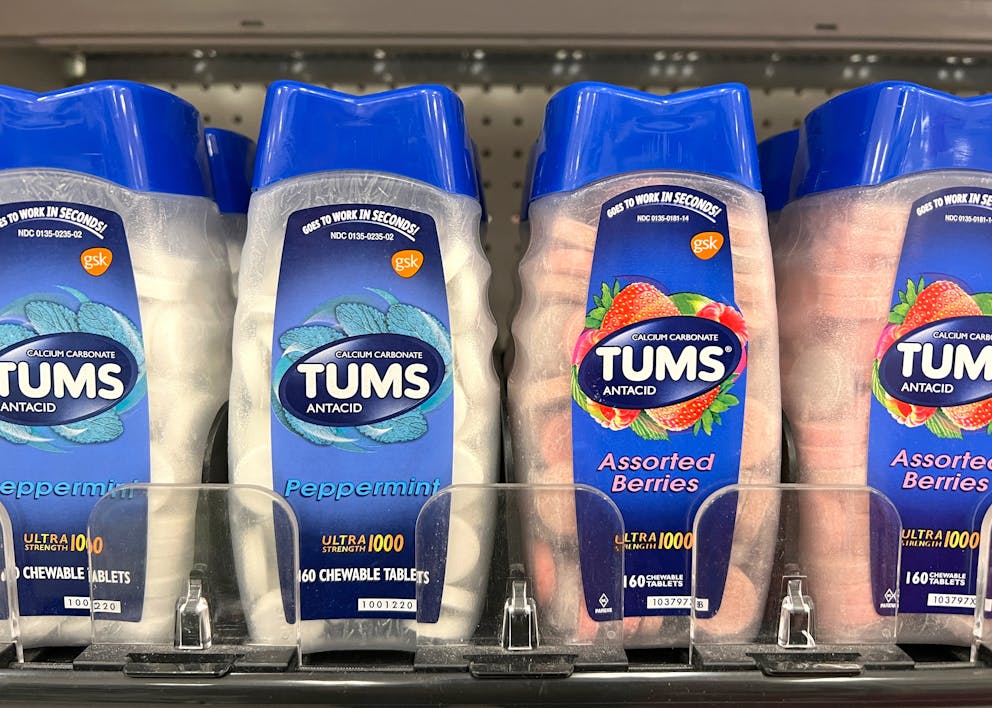
What are Tums?
Tums, or calcium carbonate, is an over-the-counter medicine used to treat heartburn, acid reflux, stomach cramps, gastroesophageal reflux disease (GERD), and stomach ulcers linked to excessive stomach acid.
Tums reduces the acid in your stomach, which can help manage the pain and burning sensations commonly experienced with the above conditions.
According to research published in StatPearls, “As an antacid, calcium carbonate neutralizes gastric acid by acting as a buffer in the stomach's acidic environment.”
In addition to Tums, there are various other antacids such as potassium bicarbonate, aluminum hydroxide, magnesium hydroxide, magnesium carbonate, and sodium bicarbonate, also known as Alka-Seltzer.
Like Tums, these antacids address the symptoms and not the root cause of heartburn or acid reflux, meaning they can make gastrointestinal problems worse in the long run.
Watch the video below to learn more about the potential side effects of Tums.
10 Side Effects of TUMS Antacid
10 Side Effects of TUMS Antacid
How does Tums affect digestion?
Tums increases the stomach’s pH levels, making it more alkaline than acidic. This can slow down or inhibit the release of bile acids and pepsin, which play a critical role in digestive processes.
Because of their acid-lowering properties, antacids may help minimize damage to the esophagus caused by problems like GERD. Reduced stomach acid can also create an environment suitable for healing stomach ulcers.
While calcium carbonate can help improve symptoms of GERD and is effectively used in treating mild digestive issues, there's some debate about its long-term effects.
Calcium carbonate has been shown to cause acid rebound, in which your body produces more acid after you stop taking antacids. This can make symptoms worse, resulting in a cycle of battling digestive discomfort with antacids like Tums.

10 side effects of Tums
Besides the risk of an allergic reaction to ingredients in Tums, numerous other side effects may result from the long-term use of antacids.
Here’s a list of ten possible side effects associated with Tums.
1. Increased urination
Tums can raise your blood calcium level, causing the body to dump excess calcium into your kidneys.
This can result in more frequent urination, which can lead to electrolyte imbalances and muscle spasms.
2. Dehydration
Because Tums causes increased urination, they can trigger or exacerbate dehydration.
Lack of adequate body fluids can lead to fatigue, headaches, a rapid heartbeat, and an increased risk of heat-related illnesses.
3. Constipation
Maintaining adequate stomach acidity is crucial to digesting food properly. Tums lowers stomach acid, which can result in poor digestive processes and constipation.
4. Burping
Low stomach acid due to the use of Tums can lead to partially undigested food in the digestive tract.
Incomplete digestion can increase bacterial fermentation linked to gas, increased pressure within the digestive tract, and burping.

5. Gas
Undigested food in the gut can disrupt the intestinal microbiome, increasing the risk of dysbiosis.
Dysbiosis is characterized by an imbalance between beneficial and potentially harmful gut microbes linked to various digestive disturbances, including gas.
6. Abdominal pain
Regular intake of Tums and low stomach acid can increase your risk of intestinal infections, such as small intestinal bacterial overgrowth (SIBO).
SIBO is associated with a wide range of digestive issues, including bloating and abdominal pain, due to excessive microbial fermentation in the small intestine.
7. Kidney stones
According to a study published in Translational Andrology and Urology, “Intestinal calcium absorption likely plays a role in kidney stone formation.”
Tums’ active ingredient is calcium carbonate, which may contribute to high calcium levels, a primary risk factor for kidney stones.
8. Mood disorders
Overuse of Tums may increase the risk of mood disorders, such as anxiety and depression.
“Lack of adequate stomach acid can negatively impact the absorption of amino acids,” explains Dr. Berg. “Amino acids play a crucial role in the production of mood-regulating neurotransmitters, such as serotonin and dopamine.”
9. Gastrointestinal infections
Low stomach acid increases susceptibility to stomach bugs and microbial infections.
Stomach acid is a first-line defense against potentially harmful microbes such as viruses and bacteria. Regular use of Tums can weaken the body’s ability to prevent intestinal infections.
10. Heart arrhythmia
Low stomach acid can impair mineral absorption, which increases the risk of deficiencies in essential electrolyte minerals such as potassium and magnesium.
Electrolytes are essential for healthy heart function, which explains why prolonged use of Tums can lead to irregular heartbeats.
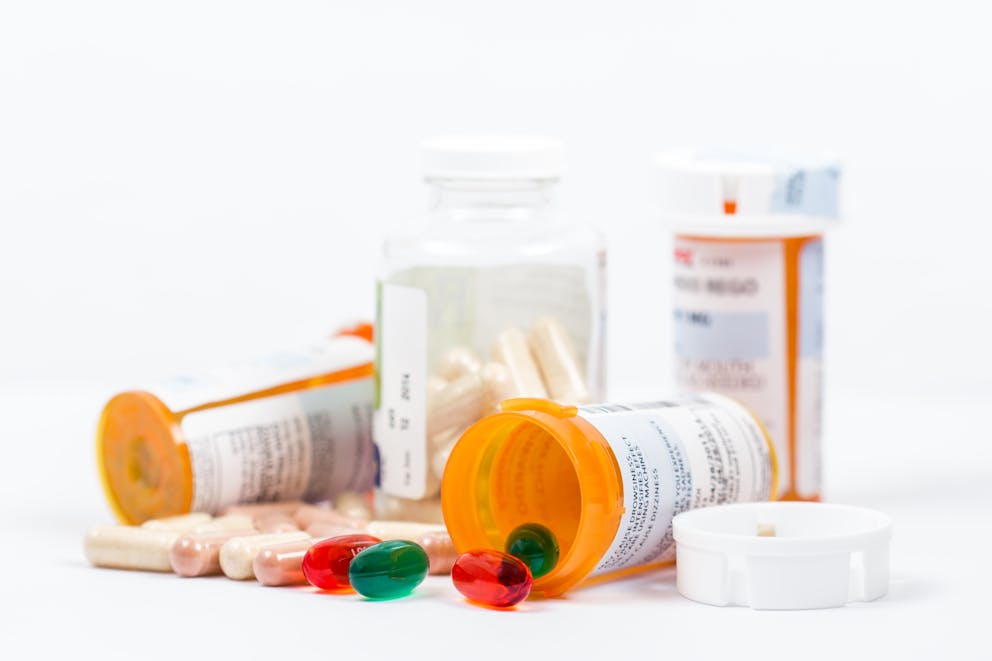
Tums’ drug interactions
Antacids are a common over-the-counter medication used by approximately half of all American adults.
Many people assume it’s safe to take Tums, but calcium carbonate has been found to interact with a range of prescription drugs.
Tums has been linked to drug interactions with several medications, including:
Iron supplements
Thyroid medication
Certain antibiotics
Seizure medications
Angiotensin-converting enzyme (ACE) inhibitors
Antiarrhythmic medications
Gastroduodenal protective agents
Non-nucleoside reverse transcriptase inhibitors (NNRTIs)
Immunosuppressive drugs
Certain medications, including drugs containing ammonium chloride and methenamine, are expressly prohibited from use with Tums.
You can minimize the risk of side effects and drug interactions by consulting your doctor or pharmacist before taking Tums with other medicines.
In addition, it’s recommended to avoid Tums if you drink alcohol, as alcohol has been found to increase the risk of drug interactions between antacids and other pharmaceutical compounds.
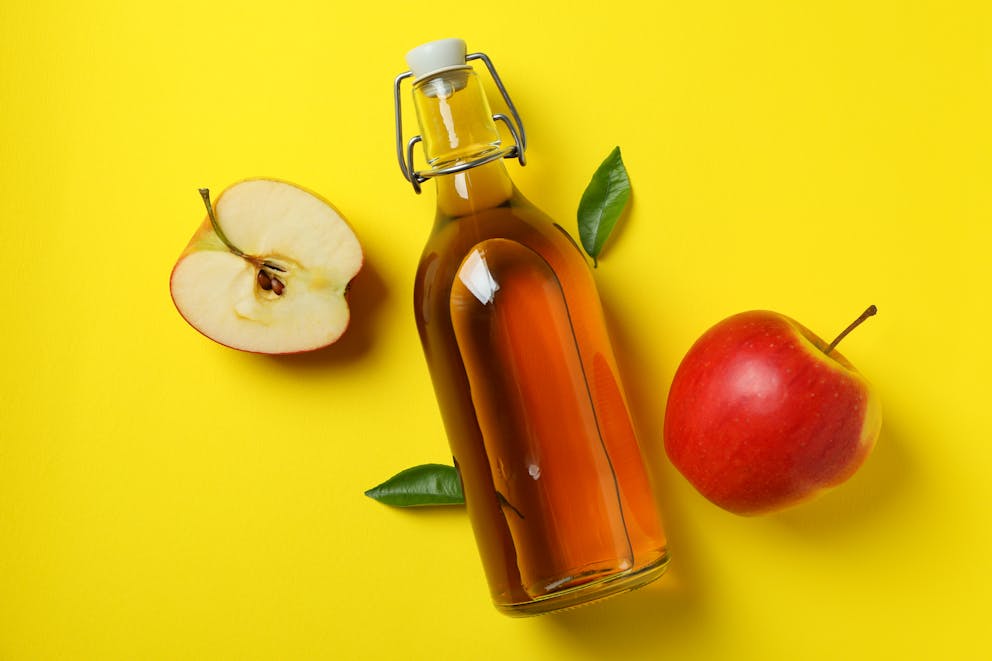
Natural alternatives to Tums
There are various natural alternatives to Tums that can help increase stomach acid production without the risk of side effects or drug interactions.
Let’s take a look at five alternatives to Tums.
1. Betaine hydrochloride
Betaine hydrochloride (HCl) is the acidic form of betaine, a non-essential amino acid found in natural sources such as beets and spinach.
Betaine HCl is generally taken as a supplement and is an effective natural alternative to Tums. It promotes optimal stomach acid levels, which helps manage and prevent symptoms of acid reflux and GERD while promoting proper digestive processes.
Taking betaine HCl before or during a meal is generally recommended to encourage stomach acid production.
2. Apple cider vinegar
Apple cider vinegar (ACV) has various health benefits, balances pH levels in the stomach, and helps speed up digestion, which is linked to improved gut health and a lower risk of acid reflux.
To use apple cider vinegar to promote digestion, mix one tablespoon of ACV with eight ounces of water and take it before meals.
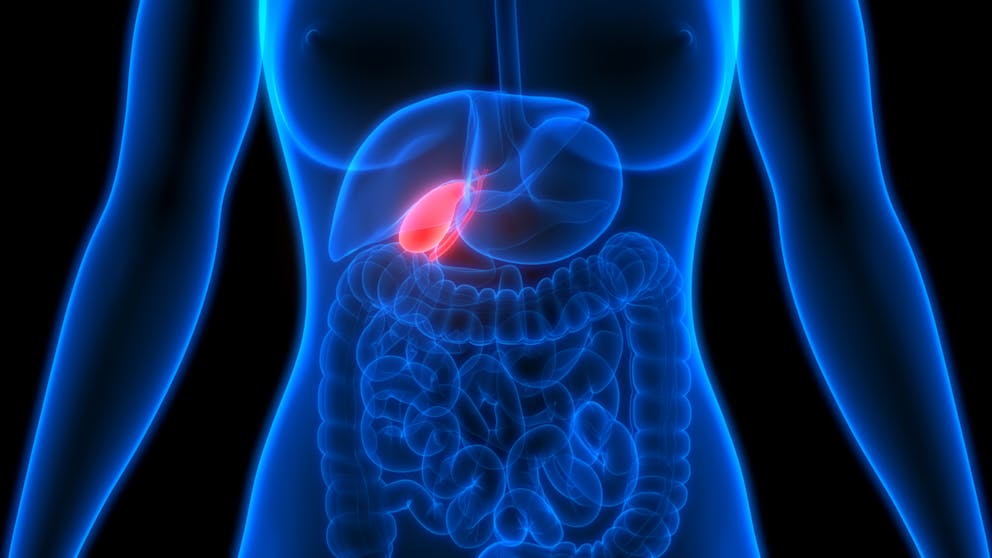
3. Purified bile salts
A lack of adequate bile acids can negatively affect your digestion and could lead to deficiencies in fat-soluble vitamins A, D, E, and K.
Purified bile salts compensate for bile deficiency and stimulate natural bile production in the liver. This supports overall digestive processes and helps prevent common intestinal issues such as abdominal pain, bloating, or gas.
Bile salts are generally taken with food. However, it’s important to carefully follow the instructions of the bile salt supplement you plan to use.
4. Increase mineral-rich foods
You can support your digestion and reduce the need for digestive aids by consuming foods high in magnesium, zinc, and potassium.
Magnesium supports muscle function, which can help prevent abdominal spasms and constipation.
Zinc promotes adequate stomach acid production, and potassium supports gallbladder function, which is crucial for bile release.
Nuts and seeds, seafood, and green leafy vegetables are all great sources of these nutrients.
5. Promote a diverse microflora
Probiotics, especially lactic acid bacteria, play a significant role in digestive health.
Supplementing with probiotics or consuming plenty of fermented foods promotes a diverse intestinal microflora crucial for overall digestive health and nutrient absorption.
According to a study published in Nutrients, probiotics have shown promise in alleviating symptoms associated with GERD, such as heartburn and reflux.
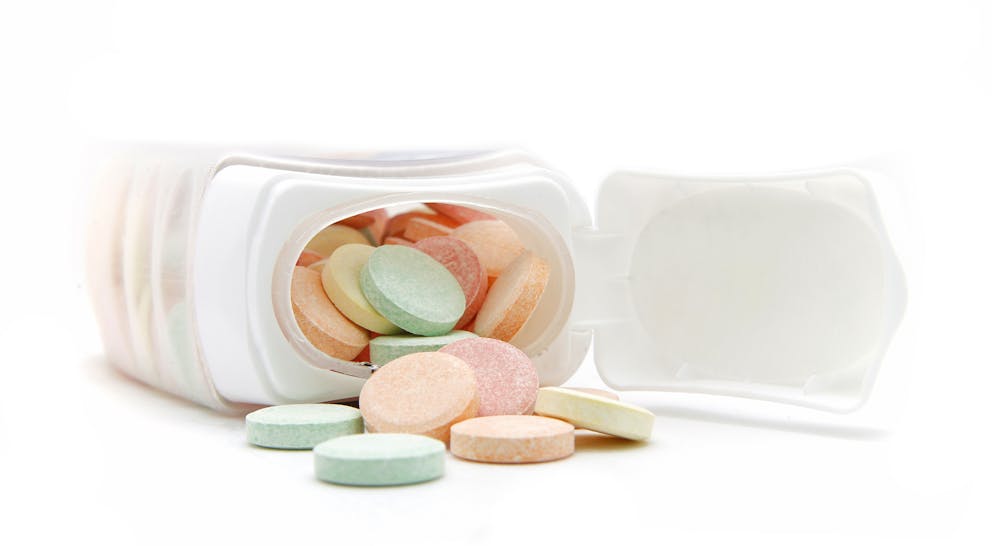
Key takeaways
Although antacids are a widely used digestive aid, there are several side effects of Tums, including frequent urination and an increased risk of dehydration, digestive issues, kidney stones, mood disorders, infections, and heartbeat irregularities.
Luckily, there are several natural alternatives to Tums, including betaine HCl, bile salts, and probiotics. These powerful remedies promote digestive health and help lower the risk of acid reflux, indigestion, and other common gastrointestinal issues.
FAQ
1. What are the side effects of Tums?
Tums and other antacids neutralize stomach acid, which can worsen digestive issues and cause side effects such as increased thirst and urination, burping, gas, and constipation. Tums can also increase your risk of kidney stones.
2. What are the best natural alternatives to Tums?
Various natural remedies promote increased stomach acid production and support digestive system function.
The best natural alternatives to Tums include betaine hydrochloride (HCl), apple cider vinegar, purified bile salts, and probiotics.
3. Is it safe to take Tums every day?
No, it’s not recommended to use Tums every day. Misuse of Tums can lead to elevated calcium levels associated with nausea and an increased risk of kidney stones.
While antacids may relieve digestive symptoms temporarily, prolonged suppression of stomach acid production can lead to various health problems.
4. Can Tums make acid reflux worse?
Yes. Though Tums chewy bites and chewable tablets are often used to treat heartburn, an upset stomach, and acid reflux, taking antacids regularly can lead to poor digestion, ultimately worsening acid reflux.
5. Can Tums cause high blood pressure?
Tums contains sodium and calcium, both of which can contribute to high blood pressure with continual use or intake above the recommended dosage.
In addition, too much calcium in the bloodstream can increase the risk of arterial plaque formation, linked to poor blood pressure control and cardiovascular disease.
6. How can I get rid of acid reflux quickly?
You can mitigate the symptoms of acid reflux by consuming a nutritious whole-food diet rich in zinc, magnesium, and potassium, such as Healthy Keto®.
Using betaine HCl or apple cider vinegar to increase stomach acid while taking bile salts and probiotics to support digestion can also lessen acid reflux.
Sources
Previous blog
Bad Breath on KetoNext blog
Kale Shake Without Berries
Popular
08/21/2024
47K views
05/22/2024
41.2K views
11/18/2024
244.2K views
03/18/2024
11/21/2022




